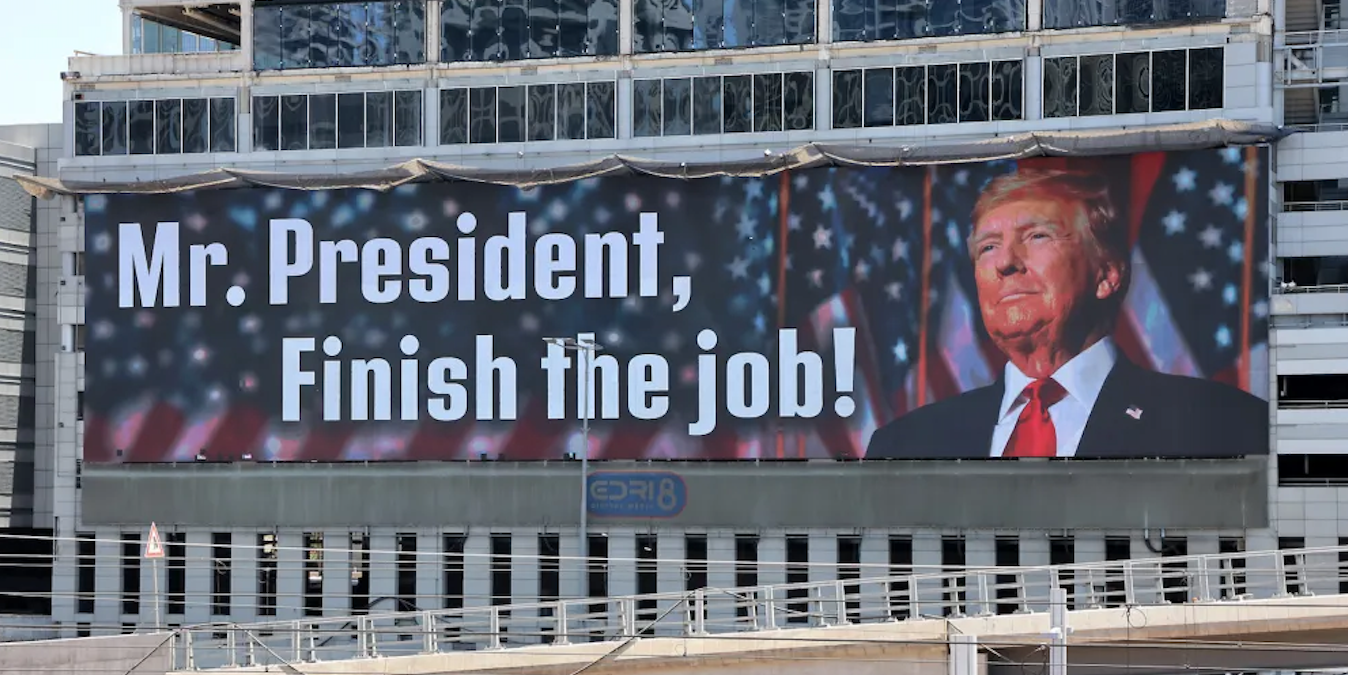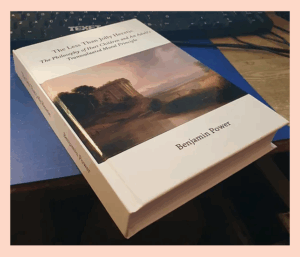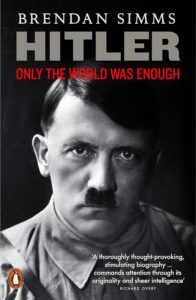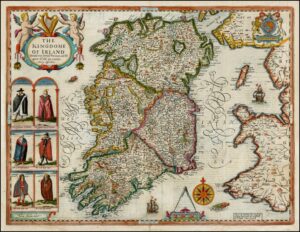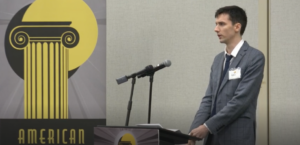Editor’s note: Below, some excerpts from pages 184-199 of the expanded, August 2024 edition of Benjamin’s The Less Than Jolly Heretic:
______ 卐 ______
 Dear César,
Dear César,
I hope you are well. Congratulations on the completion of the Savitri Devi book project. I’ve already downloaded a digital copy and read through it once. I was wondering if it was now possible to place an order for one of your home-bound editions? If you could tell me the full costs, I shall put the money through to you. I did not want to contact you until now as I wanted to make sure I was financially secure enough to afford the process and shipping costs…
I’m also aware that, sadly, the vast majority of “right-wing” individuals and the groups they cluster to are extremely hostile to manifestations of psychological pain, and ignorant over trauma, and with a particular recent drive to ridicule mental health for the purposes of ‘defeating’ their political ‘leftist’ rivals. As you wrote before, I consider them to be fakes. To be honest, you’re the only National Socialist I have ever encountered online who is at all understanding of madness…
I see nigh-on all these committed White political activists as just as much of a threat as everyone else. If there ever were to achieve substantial power, I would not expect them to impose an order in any way relatable to the worldview of National Socialism, or of any genuine intrinsic loyalty to the great vision of Adolf Hitler, or indeed the West itself…
Occasionally, I’ll check Counter Currents, maybe once every few months. I always regret it. Of all of them, I had expected more of ‘Morgoth’. I saw this today by Stephen Paul Foster. Immediately I was put off but decided to see what he had to say. I paused on the lines:
My friend, whose name was Bill, was not your typical loser who works himself into a violent temper and up and slays his defenseless girlfriend. This particular slayer turned out to be a man of advanced degrees, sophisticated tastes, serious books, and immense erudition. Fluent in four languages, the range and depth of his knowledge was phenomenal. He could converse insightfully about the influence of Kantian ethics on German legal positivism, help you fathom the aesthetics of Arnold Schoenberg’s atonalism, and substantively compare English translations of the pre-Socratic philosophers.
I knew he was hopelessly lost in relativism, ignorance and Christian moral outrage. Even culturally, we could do better than Schoenberg and Kant. Might as well be Bukowski, or at least their Hemmingway. He wrote:
In his trial for the second murder, to convince the jury that Bill’s torture and killing of his girlfriend was not a first degree (capital) murder, his attorneys summoned as defense witnesses “theorists of the mind”—psychologists—to compound the “assumptions” that would explain Bill’s evil; abstractions conjured out of the black box of “mental health” in the form of “disorders” .
Much as I don’t agree with the orthodox medical system or with the term “disorders” either, it seems like Stephen was unwilling to accept that Bill’s behaviour was in any way explainable beyond him being pure evil. I’m not sure how one could ever satisfactorily attempt to pass that off as an intelligent response. He even wrote immediately afterwards, using Poe as an authority, of all people:
By undue profundity, we perplex and enfeeble thought. — Edgar Allan Poe, The Murders in the Rue Morgue
He goes on:
The trial was a formal ritual of “undue profundity.” It attempted to factor in of all of Bill’s personal paraphernalia that had been relevant to the murder. But pondering his potential, intelligence, educational attainment, cultured charm, and his sick, unhappy childhood with divorced parents and a callous father was worse than useless as an effort to explain the elusive why he did what he did. Some people are just no good. It is that simple. They are unredeemable. They belong in Dante’s tenth and lowest circle of Inferno. The more assumptions introduced to explain it, the more confusing (perplexing) it becomes, and less satisfactory the results.
Considering what I said in my previous email, where I was pondering what the Dissident Right would be like in a position of power, this line troubled me:
Stupidity cannot be fixed; neither can evil. Yet, while everyone concedes that stupidity is impossible to remediate, many think that evil is an accident or a breakdown that can be repaired by “experts.”
Great, so first some people are just evil, fundamentally, and no further questions needed, and then we discover that they are also unable to repair from this. I am left wondering what they would propose to do, given this strange superstition. I can understand Bill’s sentencing, and I am not attempting to excuse the acts. However, I can see Stephen potentially applying this mantra further. He seems to be rationalizing for what is—in the near-synonymous to this wording of his own article—a fear of new knowledge. There is the voice of the Elizabethan witch-hunter in him. At what point does his pathetic Christian moralizing stop? What would prevent him expanding his definition of evil? I shudder to think how he would react to mental health in general. I was thinking of the case of Jeffrey Dahmer at the time, and the pieces you wrote on his case. [Editor's note: See e.g., here and here] It’s terrible, but now understandable. I am able to feel pity and sadness all round, knowing it was not dealt with in time.
After all, in the original entry in the un-updated blog he linked here Stephen wrote:
His personal history was indeed a remarkable departure from that of the typical slayer of ex-girlfriends: marks of social and economic privilege, impressive educational credentials, extraordinary intellectual attainment. Bill’s life had been considerably advantaged. His father was a highly successful attorney, first in St Louis, then in California.
He went on:
This man had been my friend for fifteen years. We met when he was a first year law student at St Louis University in 1982. I was a librarian at the law school, teaching part time and finishing a dissertation for a Ph. D. in philosophy. Bill worked as a student in the law school library and after a couple of initial encounters we became friends. Few friendships in my life formed so quickly and with such intensity, in part because we shared a passion for systematic and voracious historical and philosophical reading.
Additionally, I noted the sentence:
To me Bill had always appeared completely normal, even conservative in his personal habits, orientation and behavior.
Then, tellingly:
How could this extraordinary man I had known for so long and for whom I had so much affection, commit such horrible crimes? … How could I not over the years have seen any indications that he was capable of such murderous fits of rage? Did my friendship mean anything genuine to him, or was I a kind of social prop who served a darker pathological purpose? Was there a flaw in my character not to have recognized the malignancy in his?
I was vindicated when I read the lines:
…the attorneys also painted a picture of Bill for the jury that bore little resemblance to the person I had known for so many years. They said Bill was a socially inept, maladjusted loner, a man who had been irreparably damaged by an indifferent and emotionally distant father. About his upbringing I have no direct knowledge, but I do remember over the years how consistently he spoke with respect and admiration of his father [emphasis by Ed. - cf. the Dahmer case], particularly his basic decency and integrity.
The conclusion I drew from this was that Stephen was awed by Bill’s intelligent and academic nature, which was in fact all that really seems to have interested him, and he did not indeed know Bill that well, or a great deal about Bill’s father either, bar more credentialism, having never had the compassion or emotional intelligence to notice any warning signs of repressed psychological pain. Rather than a fairy-tale “evil,” I am concerned reading that he is so overcome with righteous rage at the crimes against two women that he cannot bear to wonder more about Bill’s childhood experiences with his father.
All he notes is Bill’s successes and erudition. I find the presumption terrible. Given the way you have exposed in your writings and links how much abuse victims idolize their abusive parents, and how the self-repressive mentality of continuing to do so is a sure-fire route to them taking out their rage on others, I thought it was not unbelievable that this indeed was the cause of Bill’s horrific criminal actions.
Rather than soaking up facts about Schoenberg and feeling smug in having a charming token ‘highly intelligent friend,’ perhaps Stephen could have listened to him, or had the perception to see between the lines. Despite his PhD in philosophy, his argument seems to stem more from his livid social embarrassment at having been ‘caught out’, especially on account of the fact that he seems to have considered Bill a good catch, almost as a vicarious academic status booster, basking in the glow of his knowledge, and yet another very able scholar himself, perhaps observable now, given his protestive elucidation, this sounder moral quality, rising.
In a nutshell, this is generally the sort of reason I keep clear of Counter Currents and the Dissident Right. They infuriate me.
Well, I’m off to lift my weights and prepare some soup, I shall look forward to ordering your bound translation next week. I hope you have a good day.
15 March 2023
